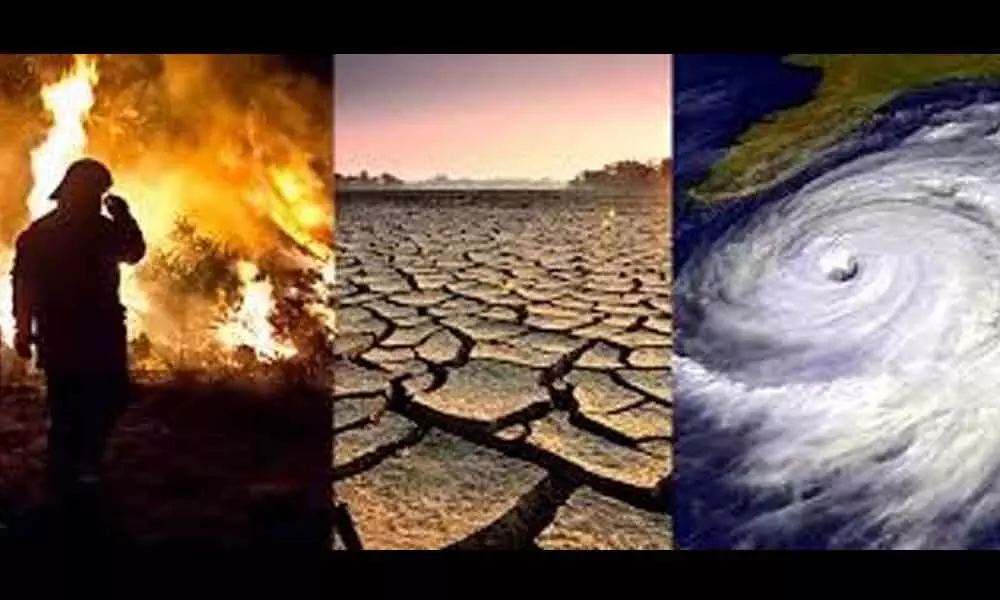Time is running out to halt global warming

Time is running out to halt global warming
Glasgow COP26: climate finance pledges from rich nations are inadequate
The make-or-break United Nations climate talks in Glasgow have begun. Much attention so far has rightly focused on the emissions reduction ambition each nation is taking to the negotiations. But another key goal of the talks is to dramatically scale up so-called "climate finance" for developing nations.
Climate finance is money paid by wealthy countries (which are responsible for most of the historic emissions) to developing countries to help them pay for emissions reduction measures and adaptation. Climate finance should be in addition to standard development aid. At the 2009 Copenhagen climate talks, wealthy nations promised $100 billion a year in climate finance to developing nations by 2020. But that goal has not been met.
A new climate finance plan, developed by Germany and Canada, has been proposed. Reports suggest it will propose meeting the $100 billion annual target by taking an average of the finance provided from 2020 to 2025, instead of in single years. The renewed focus on the plan is welcome. But it must be robust enough to tackle the mammoth task ahead, not just an exercise in shuffling figures. Time is running out – if developing nations can't afford to reduce emissions, we won't hit global climate goals and everyone will suffer.
Failing to commit enough climate finance puts us all at risk At COP26, intense pressure will be applied to developed countries to provide adequate climate finance. The promised US$100 billion a year is not nearly enough. The IPCC estimates US$2.4 trillion is needed annually for the energy sector alone until 2035 to limit global warming below 1.5 degree Celsius to prevent catastrophic consequences.
The cost for inaction is high and livelihoods are at stake. Crop failures, water shortages, and poor health outcomes due to pollution in major cities are all on the cards. Wealthy nations such as Australia are also affected by such issues – but they often have a far greater capacity to prepare and respond than developing nations. The EU remains a world leader in climate action and pledges commitments fully in line with the goals of the Paris Agreement. Its impressive set of actions includes: the "Green Deal" as a COVID recovery package the adoption of a European Climate law further reduced greenhouse gas emissions from 40% to at least 55% by 2030 carbon neutrality by 2050 a reformed emission trading scheme a carbon border adjustment mechanism.
Other sticking points COP26 will also likely see "Article 6" of the Paris Agreement come into effect, and produce more detail on how this would work in practice. This article establishes a market mechanism which would encourage emission reductions by means of carbon trading. It could mean companies have to buy allowances to continue emitting CO2. This carbon trading will provide a funding stream for climate finance.
Another topic expected to be fiercely negotiated at COP26 is the so-called "third pillar" of climate change action: loss and damage caused by human-induced climate change. Loss and damage can be, for example, slow onset events such as sea level rise or prolonged droughts. It could be extreme weather events such as floods and cyclones. Other impacts include economic damage to livelihoods and personal "non-economic losses" such as cultural heritage or loss of loved ones. Loss and damage go beyond what we consider "normal weather."
Increased human migration and displacement also fall under "loss and damage" if caused by climate change impacts. Between 2008 and 2014 and average of 22.5 million people were displaced because of extreme weather and climate-related disasters. This figure does not include migration due to sea level rise, desertification or environmental degradation. Wealthy countries fear being made liable and opening themselves up to compensation claims from poorer countries due to climate inaction, human rights violations because of forced migration or other issues related to climate injustices. The Alliance of Small Island Developing States, the Least Developed Countries and the Africa Group make up over half the world's nations and currently take the brunt of climate damage. These groups have banded together and are expected to negotiate hard on loss and damage at COP26.
Failing on climate finance means failing the planet. Court cases against fossil fuel companies are on the rise. Governments are no longer immune either. In the US, 21 young Americans recently sued the government for violating their constitutional rights by exacerbating climate change. While unsuccessful, the Biden administration agreed to symbolic settlement talks. If developing countries do not receive financial assistance to reduce emissions, it is unlikely we will meet the commitment of the Paris Agreement to limit global warming to 1.5 degree Celsius. Clearly, helping developing nations pay for the expensive work of emissions reduction and adaptation benefits everyone on the planet. (The Conversation)














